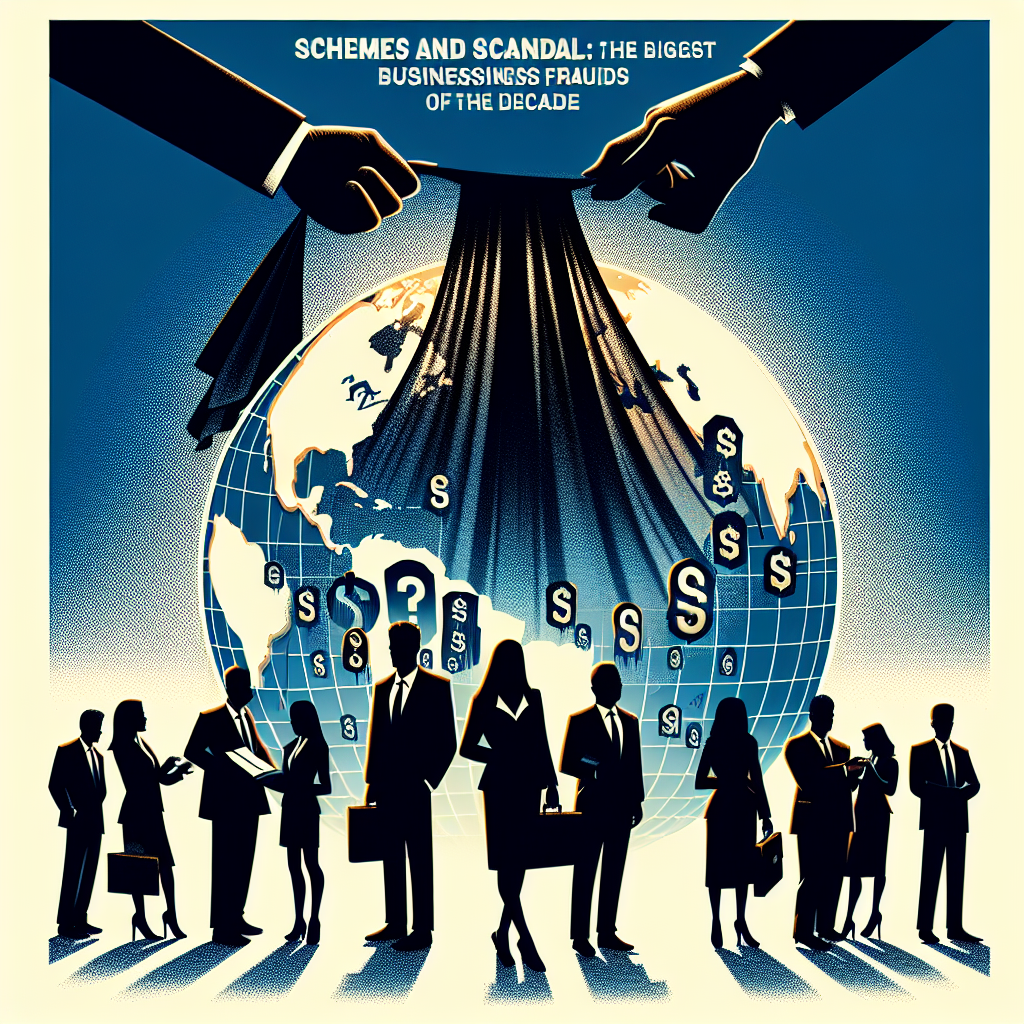In the last decade, business frauds have shocked the world. From tech giants to finance moguls, no industry is immune. Fraudulent activities not only cost billions but tarnish reputations. This article dives into some of the most notorious business scandals of the last ten years.
The Most Notorious Business Frauds
Wirecard’s Collapse: Once a fintech darling, Wirecard filed for insolvency in 2020. The German payments processor admitted that €1.9 billion was missing from its balance sheets. Executives were arrested, and shareholders lost vast sums.
Theranos’ Deception: Elizabeth Holmes claimed her startup could revolutionize blood testing. However, investigative journalism revealed that Theranos’ technology was fraudulent. The fallout led to criminal charges and enormous public distrust.
Luckin Coffee’s Fabrication: The Chinese coffee chain’s rapid rise was built on fake sales data. In 2020, the company admitted to inflating its revenue. Luckin Coffee is a stark reminder that unchecked growth can lead to disastrous fraud.
Wells Fargo’s Fake Accounts: Wells Fargo employees created millions of unauthorized accounts to meet sales targets. The scandal surfaced in 2016, leading to substantial fines and damaged customer trust.
1MDB Scandal: The Malaysian sovereign wealth fund, 1MDB, was supposed to bolster the country’s economy. Instead, billions were embezzled, implicating high-level officials and international banks.
In-Depth Analysis Through Data
Let’s examine these cases with tangible numbers and details in a highly informative table.
| Company | Year Exposed | Industry | Fraud Type | Key Players | Financial Impact |
|---|---|---|---|---|---|
| Wirecard | 2020 | Fintech | Missing funds | Markus Braun, Jan Marsalek | €1.9 billion missing |
| Theranos | 2015 | Biotechnology | Scientific deception | Elizabeth Holmes, Ramesh Balwani | Billions in investor losses |
| Luckin Coffee | 2020 | Food & Beverages | Fake revenue | Charles Lu, Jian Liu | Indeterminate investor losses |
| Wells Fargo | 2016 | Banking | Fake accounts | John Stumpf, Carrie Tolstedt | Over 3 million fake accounts |
| 1MDB | 2015 | Finance | Embezzlement | Najib Razak, Jho Low | $4.5 billion misappropriated |
Common Tactics Used in Business Frauds
Companies use varied tactics to deceive investors, auditors, and the public. Some of the most common methods include:
- Falsifying Financial Statements: Businesses inflate revenues or hide debts.
- Insider Trading: Executives trade on non-public information.
- Ponzi Schemes: New investors’ money is used to pay existing ones.
- Shell Companies: Fake entities are used to launder money or hide illegitimate transactions.
Have These Frauds Changed Regulation?
Yes, these scandals have pushed regulators to tighten rules. Governments and organizations now emphasize transparency and accountability. For example, the Sarbanes-Oxley Act mandates more rigorous auditing practices. In Europe, the EU’s Market Abuse Regulation aims to prevent insider trading and market manipulation.
What Can Investors Do to Protect Themselves?
Investors should conduct thorough research before investing. They should check a company’s past performance and scrutinize management. Moreover, consider diversifying your portfolio to minimize the risk of a single fraudulent event.
How Do These Scandals Affect Public Trust?
Frauds severely damage public trust. The public becomes wary of investing. This can stifle economic growth and innovation. Therefore, it is crucial to rebuild trust with stricter regulations and ethical standards.
Related Questions
How did Wirecard manage to evade detection for so long?
Wirecard’s executives manipulated financial records. They claimed they held €1.9 billion in escrow accounts. External auditors could not verify these funds. The company used complex transactions to confuse auditors. Additionally, regulatory bodies lacked stringent oversight. Ultimately, it took investigative journalists to expose the fraud.
How did Elizabeth Holmes convince investors to fund Theranos?
Elizabeth Holmes used charisma and lofty promises. She claimed Theranos’ technology would revolutionize healthcare. With endorsements from high-profile figures, she built credibility. Investors were enamored by her vision and the potential market impact. However, they failed to perform due diligence on her unverified claims.
What lessons can startups learn from Luckin Coffee’s downfall?
Startups should focus on sustainable growth. Luckin Coffee’s fraud exploited a rapid expansion strategy. Truthfulness is vital, as inflated numbers can lead to catastrophic failures. Additionally, maintaining ethical practices builds long-term success. Transparency with stakeholders fosters trust and credibility.
Are there lasting impacts from the Wells Fargo scandal?
Yes, Wells Fargo’s reputation was severely damaged. The bank faced extensive legal and regulatory repercussions. Many customers lost trust and switched banks. Looking forward, the scandal underscores the importance of ethical behavior and regulatory compliance in banking.
For more insightful articles on recognizing business frauds, visit RedFlagScammers. Stay informed and protect your investments from potential scams.

